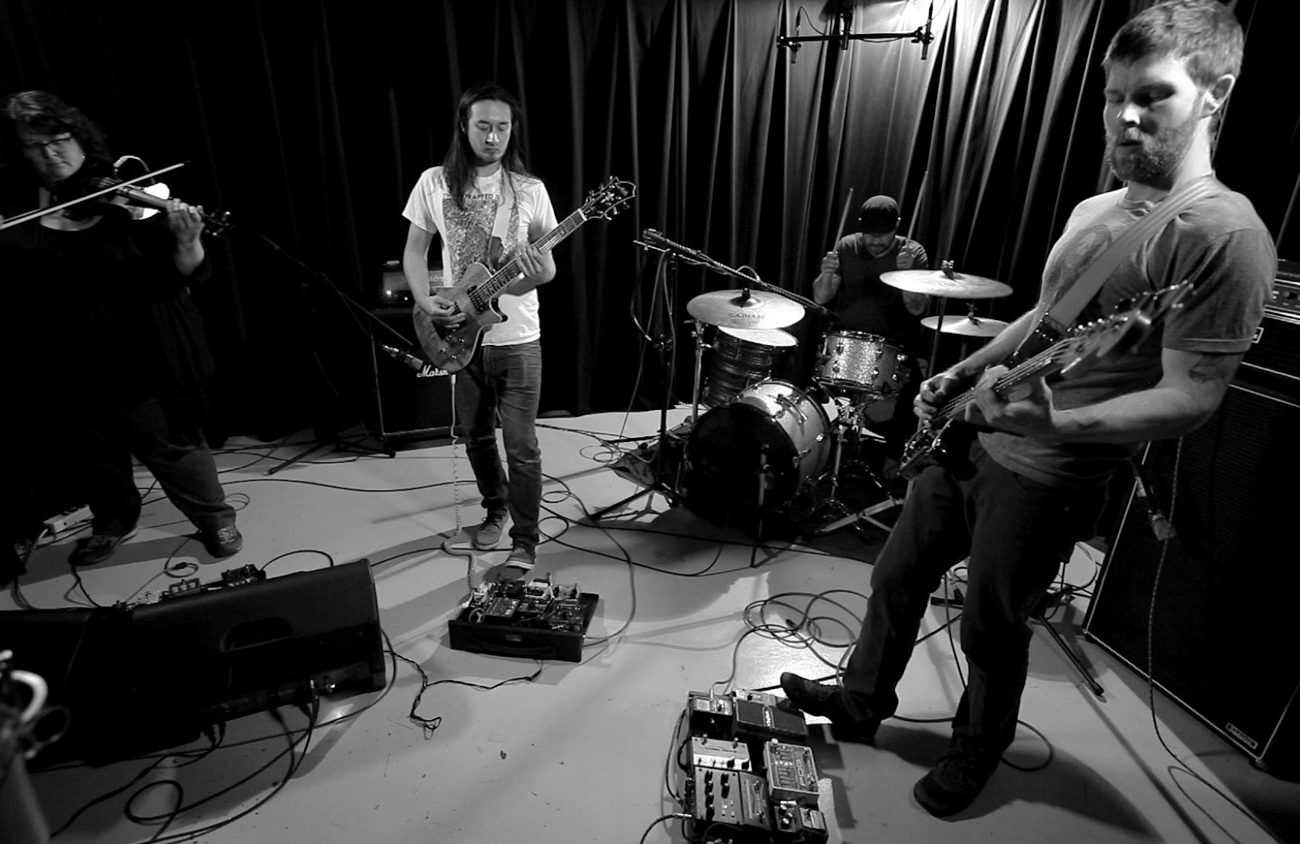In November 2016, Eugene post-rock band Gazelle(s) were in Joshua Tree, California. “We were out there when Trump got elected,” recalls Gazelle(s) violinist Michelle Whitlock. She remembers looking up at the desert sky as the news rolled in, thinking, “What’s going on?”
Gazelle(s) were out in the desert tracking their debut LP, There’s No One New Around You, at Rancho de La Luna, a legendary recording studio owned by Dave Catching, a touring member of Eagles of Death Metal. Well-known acts like Queens of the Stone Age and PJ Harvey have recorded at Rancho de La Luna, and Gazelle(s) bassist Neal Williams calls the opportunity for his band to record there “a gift from Ninkasi.”
The Eugene brewery frequently partners with musicians on recording and promotional projects. Gazelle(s) celebrate the release of their debut alongside fellow Eugene post-rock acts Paleons and Childspeak this weekend at Hi-Fi Lounge. The album will be available on vinyl and streaming services.
Post-rock is known for using rock instrumentation without vocals. The music can be cinematic, moody and dynamic, with some heady elements of progressive rock or what’s sometimes called “math rock” — elements like odd time signatures and complex, thoughtful composition.
With a debut album from Eugene post-rock band This Patch of Sky out on mid-major record label Equal Vision Records, and several instrumental acts drawing crowds at local venues, Eugene could be positioning itself as a post-rock capital.
Gazelle(s) say it makes sense to call their sound post-rock, but offer alternatives such as “space rock,” “math rock” or even simply calling it “vocal-free.”
“When I hear these songs,” guitarist Tim Smith says, “I don’t hear vocals.” And the band agrees working on the record out in the desert influenced the result. Smith calls the room the band recorded in “immediate” and says the environment “added to the songs a lot. It slowed everything down.”
Smith continues: “We wrote this album to be an album. Hope and anger are prominent.”
And on tracks such as “Discord, Dents and Bends” there’s a wide-eyed sense of wonderment, like staring into a sea of stars and metabolizing the eternity staring back at you. The rhythm section, featuring Terrance Lee on drums, loops hypnotically under Smith’s chiming, circular guitar work as Whitlock’s violin fills the role of the vocalist, providing a high-end melody line.
Williams jokes that the band likes to “get a little weird” with time signatures, like periodically dropping beats, which gives the music an off-kilter intensity. Throughout, songs build and ebb, stop and start, losing themselves in chaos and pulling themselves back into restraint. You hear moments of wild aggression and beautiful introspection on songs like “Great White Black,” offering several instances of how deftly Gazelle(s) come together rhythmically.
“Our sound isn’t just one thing,” Smith says. “It can be many different things. We don’t write songs, we write movements. We can make anything sound like the band.”
Williams adds: “We try to subvert expectations.”
Smith calls Gazelle(s)’ songwriting process democratic. “We don’t really have a songwriter,” he says. “This is the band I’ve always wanted to be in.
Gazelle(s) play with Childspeak and Paleons 10 pm Saturday, Oct. 21, at Hi-Fi Lounge; $5, 21-plus.
